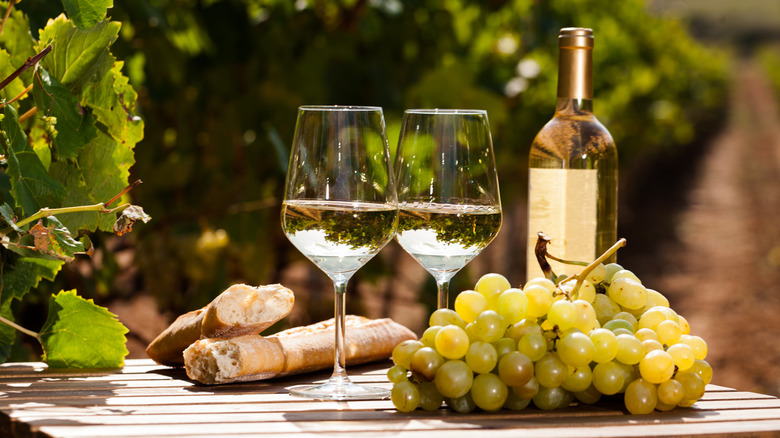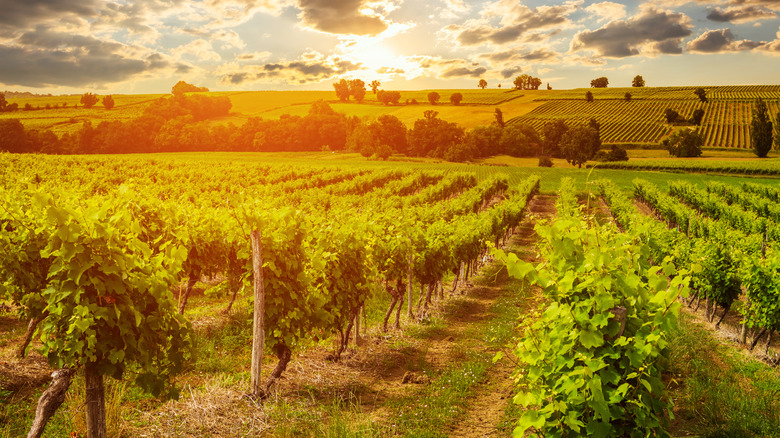Why France's Wine Production May Be Out Of Danger
Last year was especially nerve-wracking for winemakers and wine drinkers alike. The outlook on wine production was so dismal in November, that the International Organisation of Vine and Wine (OIV) put out a press release announcing the global production volume of wine was anticipated to be below average for the third year in a row. The OIV explained that "late spring frost and overall unfav[o]rable climatic conditions" in the European Union, especially in Italy, Spain, and France, were the reasons for the unfortunate forecast. The potential wine shortage wasn't just a concern for oenophiles; it also may have cut down on some of the cheer for anyone trying to find champagne to toast the holidays for year-end celebrations.
Hopefully, the wine worries of 2021 will become a distant memory, and some recent news may be reason enough for a little optimism on the subject. According to Reuters, France is expecting wine production to bounce back this year. Fortunately for the country and everyone who enjoys its wine, favorable grape-growing weather was more in abundance this year, according to the outlet. Though the news might sound a lot more promising than the previous headlines about the frost that affected French vineyards this past spring (via ABC), you may not want to crack open that special bottle of wine you've been saving just yet.
France's drought could limit its wine production
There's mostly good news coming out of France for the winemaking industry. Reuters reports wine production for the country is anticipated to increase to the tune of 13–21% this year, explaining that although there were parts of the country that experienced frost and hail, most areas benefited from better weather. But, then again, there's the drought.
The same drought that brought the production of one of France's oldest cheeses to a halt (via Food & Wine) could also be an issue for the country's wine production. According to Reuters, drought conditions are affecting grapes in Alsace, Languedoc-Roussillon, and Burgundy. Despite the adverse effects of the drought, per Decanter, expectations are still high for Burgundy, where the 2022 wine production is expected to exceed its five-year average, and for Champagne, where this year's yield limit is better than it has been in over a decade. Hopefully, those promising numbers mean finding champagne to ring in the new year will be much easier than keeping those lofty resolutions.

